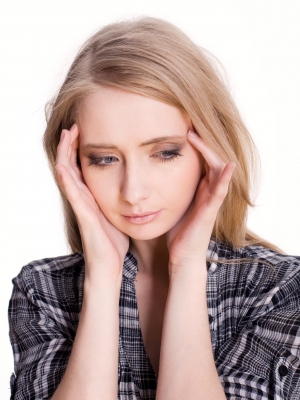 Ever felt “down in the dumps?” Ever had a “case of the blues?” Ever been completely “down and out?” If you answered yes to any of these questions, then relax. You only proved that you’re normal. Whether it’s the result of a major break-up, the loss of a pet, or those crazy female hormones that will get any boyfriend/husband walking on eggshells, sadness is normal. Ask anyone you meet and chances are they will tell you that at some point in their life, they’ve felt depressed. But “feeling depressed” is not the same thing as “having depression.” While a depressed mood must be present for a diagnosis of depression, it is only one of the many symptoms of this disorder. In other words, “feeling depressed” is necessary but not sufficient for a diagnosis of depression.
Ever felt “down in the dumps?” Ever had a “case of the blues?” Ever been completely “down and out?” If you answered yes to any of these questions, then relax. You only proved that you’re normal. Whether it’s the result of a major break-up, the loss of a pet, or those crazy female hormones that will get any boyfriend/husband walking on eggshells, sadness is normal. Ask anyone you meet and chances are they will tell you that at some point in their life, they’ve felt depressed. But “feeling depressed” is not the same thing as “having depression.” While a depressed mood must be present for a diagnosis of depression, it is only one of the many symptoms of this disorder. In other words, “feeling depressed” is necessary but not sufficient for a diagnosis of depression.
Depression is one of the most common mental illnesses existing today, so much so that it has been dubbed the “common cold of mental disorders.” Although the term is often used to describe normal emotional reactions, depression is a whole body illness, affecting feelings, thoughts, behavior as well as physiological functioning. It is not a transient state that quickly passes by or some sort of emotional trance that you can just “snap out of.” More importantly, depression is not a sign of weakness. Young or old, rich or poor, beggar or thief – no one is immune to this condition. [showmyads]
According to the Diagnostic and Statistical Manual of Mental Disorders, Fourth Edition (DSM-IV) (American Psychiatric Association, 2000), in order to be diagnosed with a Major Depressive Disorder an individual must experience at least five of the nine symptoms listed below during the same two-week period, one of which must be a depressed mood or loss of interest/pleasure. Symptoms must represent a change from the individual’s previous manner of functioning:
- depressed mood most of the day, nearly every day
- markedly diminished interest or please in all, or almost all, activities most of the day, nearly every day
- significant weight loss when not dieting or weight gain, or decrease or increase in appetite nearly every day
- insomnia (difficulty falling asleep or remaining asleep) or hypersomnia (oversleeping) nearly every day
- psychomotor agitation or retardation nearly every day
- fatigue or loss of energy nearly every day
- feelings of worthlessness or excessive or inappropriate guilt nearly every day
- diminished ability to think or concentrate, or indecisiveness, nearly every day
- recurrent thoughts of death (not just fear of dying), recurrent suicidal ideation without a specific plan, or a suicide attempt or a specific plan for committing suicide
The DSM-IV criteria for depression, while beneficial for diagnostic purposes, in no way captures the full range of symptoms experienced by depressed individuals. Additional symptoms are outlined below according to the four aspects of functioning most commonly affected by depression:
Feelings/Emotions: In addition to feeling sad, the depressed person might also become irritable or easily frustrated over minor issues. They may feel helpless, discouraged and despondent. At other times, they may feel rejected and unloved. Feelings of anxiety are also common among persons with this condition.
Thoughts/Cognition: Individuals may begin to experience problems with short term memory. They tend to dwell on past mistakes, blame themselves excessively, even in cases where they are not at fault, and may entertain the idea that they deserve to be punished. They may adopt a pessimistic outlook on life and become extremely self-critical. They may also judge themselves unworthy of praise and admiration and experience low self-esteem.
Behaviour: Persons who are depressed may cry very often, sometimes for no apparent reason. Sexual activity usually decreases and social withdrawal is common. Depressed persons tend to avoid other people, preferring to be by themselves most of the time. They may also react with angry outbursts when frustrated. In extreme cases, they may lose interest in their appearance and even neglect personal hygiene.
Physical Functioning: Some individuals experience a range of bodily aches and pains during periods of depression. Others become extremely lethargic to the point where simple tasks, such as bathing or getting dressed, seem overwhelming. Persons may experience gastrointestinal problems and females may experience irregularities in their menstrual cycles.
Reference
American Psychiatric Association. (2000). Diagnostic and statistical manual of mental disorders (4th ed.).Washington,DC: Author.
Photo courtesy of Michal Marcol / FreeDigitalPhotos.net
Related articles
- Many Millions Suffer from Depression (voanews.com)
- DSM-IV: Depression Defined (everydayhealth.com)
- World Mental Health Day: Defeating the dog called Depression (blogs.independent.co.uk)


